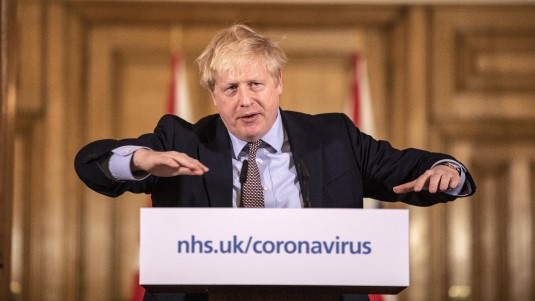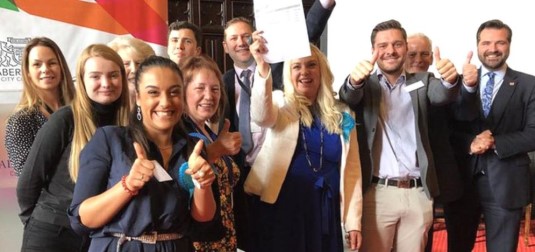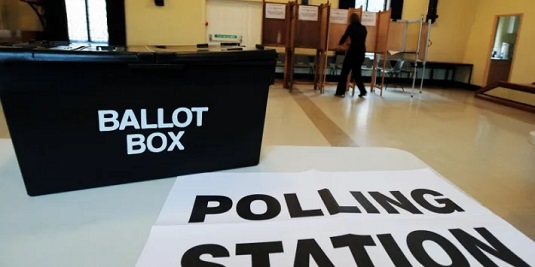Three months since the last one of these. Can you Adam and Eve it? Me neither, so here's what I've got through since the beginning if this here year.
Royals by Emma Forrest
Cibola Burn by James SA Corey
Stolen by Grace Blakeley
The Atrocity Exhibition by JG Ballard
Radical Thought in Italy edited by Poalo Virno and Michael Hardt
The Only Story by Julian Barnes
Fully Automated Luxury Communism by Aaron Bastani
The Free Economy and the Strong State by Andrew Gamble
The Age of Capital by Eric Hobsbawm
Lie With Me by Philippe Besson
Corbynism from Below edited by Mark Perryman
Consent by Leo Benedictis
The Card by Arnold Bennett
Capitalism Divided? by Geoffrey Ingham
Other People's Politics by JA Smith
The History Man by Malcolm Bradbury
The Street by Bernadine Bishop
HHhH by Laurent Benet
Politics and the Pound by Philip Stephens
Tracer by Rob Bufford
A History of Conservative Politics, 1900-1996 by John Charmley
Legion by William Peter Blatty
Let Us Face the Future Again by Wes Streeting
The Strange Death of Tory England by Geoffrey Wheatcroft
Brief Lives by Anita Brookner
Eagle-eyed viewers will note this is the second time Geoffrey Wheatcroft's waspish account of the declining fortunes of the Tories (prior to 2005) has appeared on this list. Book writing duties necessitated a reread, which you could hardly describe as a chore - it comes highly recommended, even if the author spends the entire book mourning the passing of the old, patrician governing class. The other book of note is Geoffrey Ingham's polemic against the fractions of capital argument you often find in Marxist accounts of British capitalism (guilty as charged). Instead he makes the case that this underestimates and misrecognises the role of the City both in terms of why it is prioritised by the British state, how it has configured the class structure, and why industry has always been a subordinate sector. Certainly much pause for thought here which has led me to reevaluate and rethink the Tory party's relationship to and with capital.
On the novels front Malcolm Bradbury's 1975 classic of a swinging, saucy, and utterly unscrupulous sociologist was good fun - though obviously a million miles away from the bureaucracy-bound, emotional labouring and homeworking exponents of the discipline in 2020. Arnold Bennett's The Card is considered one of the better novels from Stoke's best-known contributor to literary fiction. I suppose it is mildly entertaining, but the capers involved are pretty twee. And lastly, shout out to Anita Brookner's Brief Lives. This is an intense character study of an old woman brooding on her failed friendships and relationships, and is shot through with regret for a life that has passed her by. If you need a dose of well written and compelling misery, this is the book for you.
Image Credit
Oh noes. According to the latest poll, the Tories are on 54% and Labour are stuck at 26%. 72% are satisfied with Boris Johnson's performance and ditto for the government as a whole. There are a few points that arise from this polling, quite apart from why pollsters are requiring call centres to carry this out for them when workers should be sat at home and stymieing the spread of Covid-19.
Firstly, polling electoral intentions are utterly pointless - a point the article above concedes. It isn't just that elections are now postponed, but also the moment we're living in is fleeting and highly unusual. Voting intentions today aren't voting intentions four years hence, though it is beyond likely the politics then are still going to be dominated by this crisis and the subsequent recovery. Also, Labour isn't figuring in the wider political imaginary - apart from scabby MPs coveting the settling of scores. This isn't because Labour haven't been taking to the airwaves making their criticisms known as Jeremy Corbyn and John McDonnell both have ventured powerful criticisms of the government's handling that echo points long made by health campaigners and NHS workers. It is, sadly, because most people have tuned out from what they're saying. The double whammy of election defeat and the stupidly, unnecessarily long leadership contest has simply ruled Corbyn out as a contender. No doubt this will change with the election of a new leader next week, but in the mean time can't do anything but depress Labour's numbers.
The second explanation is so obviously obvious even a politics prof would get it. In times of national emergency, there is a tendency for people to rally around the government because, well, there is nothing else they can do. We see it in country after country, the support for incumbent leaders have gone up. Even Donald Trump, whose handling of the Coronavirus crisis has proven spectacularly incompetent and has doomed tens if not hundreds of thousands to otherwise avoidable deaths has enjoyed a bounce in approval ratings. Hence the criticisms, of which there are legion, that can be made about the government completely bounce off or do not find a mass audience.
Think about it like this. Facing an invisible adversary individuals are powerless against, the avenues of agency are radically narrowed. Abiding by the letter of the government's advice is an obvious means of doing something. And as someone who's been out everyday during the crisis to get in my state-sanctioned exercise, its effect has proven striking. Virtually no cars on the roads. Very few people in our local park. But staying home is not enough. As police reports suggest, we've descended into a nation of curtain twitchers with neighbour informing on neighbour, and suspicious people (i.e. anyone happening to stroll by) sparking unease and dread across the land. The likes of Derbyshire Police should be mocked for their over-the-top scouring of the Dales and Peak District by drone, but they're sublimating the eye-spy proclivities of millions of scared and frustrated people. The stymied agency does have its positives though, such as the public round of applause NHS workers received on Thursday, the setting up of mutual aid organisations, and the hundreds of thousands who've volunteered in response to the government's call. Things have got so bad that even Twitter is bearable, being used for good-natured bants and a means of whiling away the hours positively. And this in turn reflects on the government. As the state is the legitimised institutional expression of country and therefore representative of the "national community", it condenses the hopes of beating this disease and finds projected onto it what you might call aspirational agency - what its populace would like to do, but can only effect through collective effort. In this case, what the state is apparently doing on their behalf.
This cannot persist, and will not persist. China and Italy have already seen outbreaks of violent unrest, and while it would be stupid to suppose the UK has this to look forward to with any sense of inevitability, these polling figures won't last forever. For as long as the emergency is perceived, unless the government does anything else egregiously and obviously stupid most will continue to give them the benefit of the doubt. What happens when normality arrives, and how the Tories are going to try and turn the clock back, this will be the crucial time. Therefore it's not worth paying any mind to polling until then, except as a curio for future historians.
Image Credit
Overall, 47,833 votes were cast over 29 local authority (tier one and tier two) contests. All percentages are rounded to the nearest single decimal place. For comparison you can view Quarter Four 2019's results here.
Party | Number of Candidates | Total Vote | % | +/-
Q4
| +/- Q1 2019 | Average | +/-
Seats |
Conservative | 28 | 18,170 | 38.0% | -0.7% | +12.2% | 649 | -2 |
Labour | 24 | 14,292 | 29.9% | +0.3% | +2.2% | 596 | -2 |
LibDem | 20 | 8,103 | 16.9% | +2.7% | -4.6% | 405 | +3 |
Green | 19 | 2,230 | 4.7% | -2.1% | +0.3% | 117 | 0 |
SNP* | 1 | 898 | 1.9% | -1.5% | +0.3% | 898 | 0 |
PC** | 1 | 189 | 0.4% | -0.3%
| -1.1% | 189 | +1 |
Ind*** | 20 | 3,834 | 5.2% | +0.6% | -5.4% | 192 | 0 |
Other**** | 2 | 117 | 8.0% | +6.6% | +2.5% | 59 | 0 |
* There was one by-election in Scotland
** There was one by-election in Wales
*** There were five Independent clashes
**** Others this quarter consisted of Socialist Alternative (101 votes) and UKIP (16 votes)
What's happened with the postponement of more than half of March's contests has obviously impacted the results tallies, but the pattern we see here repeats what we saw last quarter. In other words, a return to politics as normal with Tories, Labour, and the Liberal Democrats settling back into their traditional positioning in popular vote terms. When the quarterly round up returns perhaps everything will have changed, or nothing at all. Stay tuned.
This month saw 4,730 votes cast over six local authority (tier one and tier two) contests. All percentages are rounded to the nearest single decimal place. Two council seat changed hands. For comparison with February's results, see here.
Party | Number of Candidates | Total Vote | % | +/-
Feb
| +/- Mar 19 | Avge/
Contest | +/-
Seats |
Conservative | 5 | 1,587 | 35.6% | -2.9% | +11.4% | 317 | -1 |
Labour | 4 | 733 | 15.5% | -14.5% | -16.3% | 183 | 0 |
LibDem | 4 | 1,490 | 31.5% | +16.0% | +14.1% | 373 | +1 |
Green | 4 | 181 | 3.8% | +1.3% | -4.1% | 45 | 0 |
SNP | 0 | | | | | | 0 |
PC** | 0 | | |
| | | 0 |
Ind*** | 3 | 638 | 13.5% | +0.9% | +5.0% | 213 | 0 |
Other**** | 1 | 101
| 2.1% | +2.0% | -1.6% | 101 | 0 |
* There were no by-elections in Scotland
** There were no by-elections in Wales
*** No Independent clashes this month
**** The only Other this month was Socicalist Alternative (101 votes)
Bloody Coronavirus, coming over here, wreaking a health emergency and postponing local council by-elections indefinitely. Still, we managed to sneak six contests out before the curtain fell, so it makes zero sense to read anything into these results. Because we got interrupted about midway through the monthly cycle and, well, we're going to be in Year Zero territory when politics as normal reconvenes. Until then gaze upon these results and soak them up. You won't see their like again for quite some time.
10th March
Wiltshire UA, Till and Wylye Valley, Con hold
12th March
Ashford DC, Park Farm North, Ind gain from Con
Highland UA, Eliean a Cheo, Ind
South Somerset DC, Parrett, LDem hold
Stratford on Avon DC, Welford on Avon, LDem gain from Ind
19th March
Clackmannanshire UA, Clackmannanshire East, Con postponed
Coventry CC, Upper Stoke, Lab hold
Test Valley DC, Chilworth, Nursling and Rownhams, Con postponed
Thanet DC, Newington, Lab postponed
26th March
Copeland BC, Whitehaven Central, Lab postponed
East Staffordshire DC, Eton Park, Lab and Ind postponed x2
Gloucestershire CC, Winchcombe and Woodmancote, Con postponed
North Lincolnshire UA, Ashby, Lab postponed
North Lincolnshire UA, Broughton and Appleby, Con and Con postponed x2



